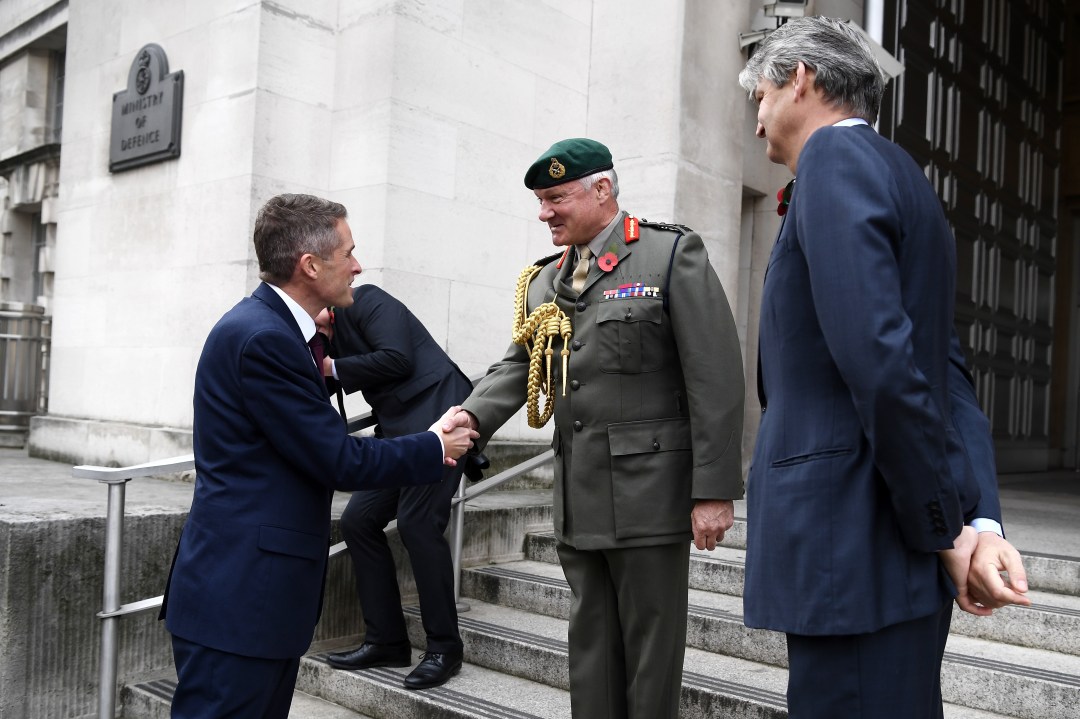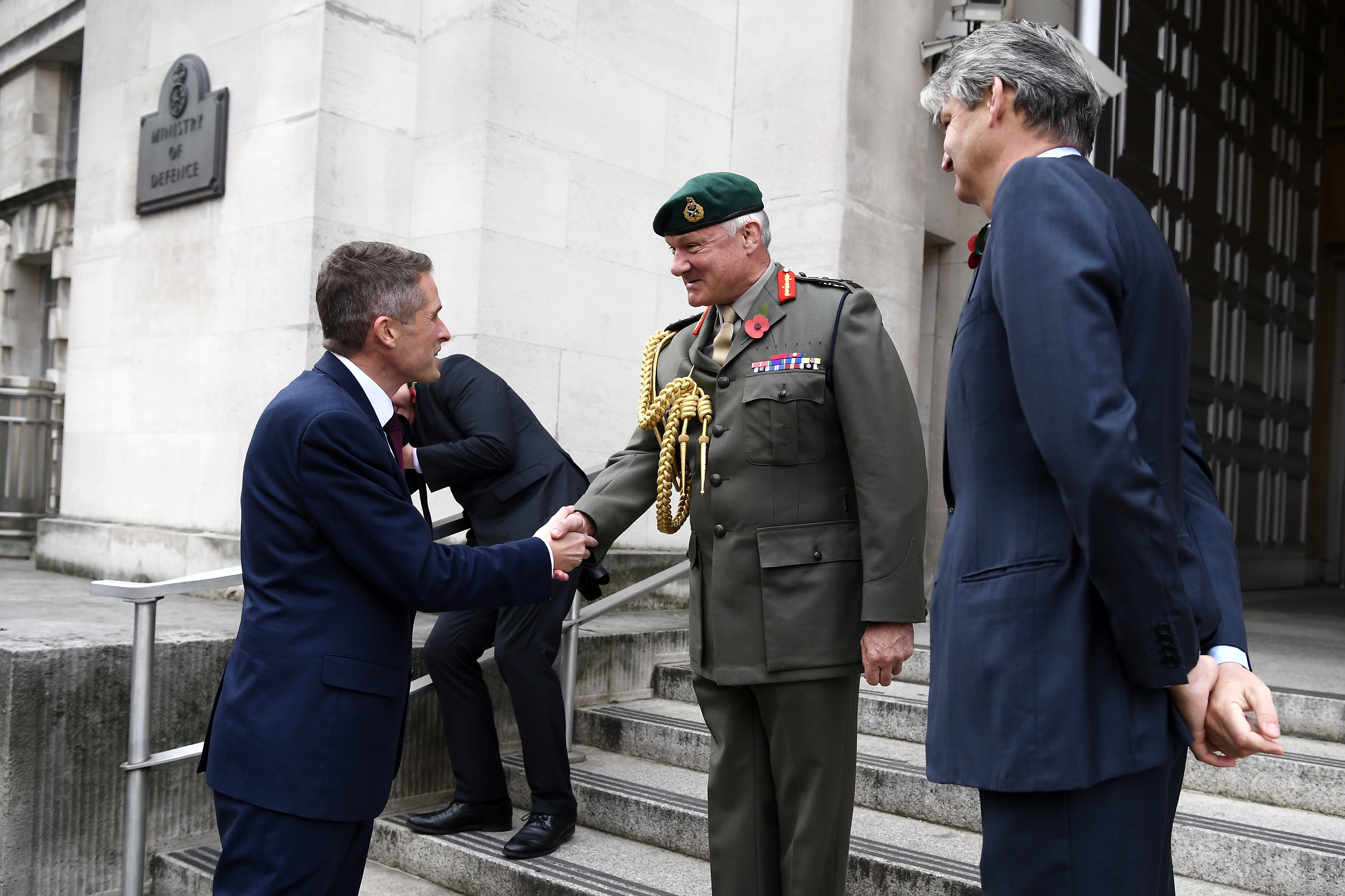A new Commons report is out today and it does not make for happy reading. The Ministry of Defence’s (MoD) system of procurement is ‘broken’ with billions of taxpayers’ money wasted, according to a cross party committee of MPs. The Public Accounts Committee (PAC) judges that out of the MoD’s 20 largest projects, 13 were running late by a cumulative total of 21 years.
This includes the £4 billion farce of the Ajax armoured vehicle — a piece of kit that has thus far managed to inflict more damage on its users than its targets, thanks to its excessive vibration and noise which left crews suffering from nausea, swollen joints and tinnitus. Currently there is ‘no timescale’ when it will be ready for service. All this has left the PAC with the depressing conclusion that last year’s £16.5 billion increase in defence spending — the biggest uptick in defence spending since the Cold War — will go entirely towards mismanaged defence procurement projects, with no additional capacity whatsoever.
Not for nothing has Ben Wallace hauled in defence chiefs for a dressing-down. Steerpike has never been slow to criticise politicians for their blunders but in the MoD it seems much more institutional, than political, given the litany of errors in recent years. Over the past decade-and-a-half there has been the £430 million wasted on the warrior armoured vehicle, £2.5 billion overspent on two aircraft carriers, £1.35 billion extra for aspects of the nuclear weapons programme and seven years delay to the Dreadnought submarines.
But Wallace’s criticisms are not just confined to defence procurement; the Defence Secretary is said to have become ‘exasperated’ by a string of incidents involving culture and conduct in the service. Among these include the alleged killing of a Kenyan prostitute in 2012 by a British soldier and its subsequent investigation, the suicide of a female Sandhurst cadet in 2019, bullying allegations and senior officers being probed about false education allowance claims. More such scandals seem, sadly, likely to follow, with Wallace particularly concerned about the treatment of women in the armed services.
Such concerns will not be helped by how the MoD’s police force treats its own staff. In the wake of the Metropolitan Police’s handling of Sarah Everard’s murder, Mr S uncovered figures via Freedom of Information requests which show that the 2,500-strong MoD Police Force had four complaints for sexual harassment or discrimination submitted against its officers and staff in two years by other female employees.
And following the Sunday Times reports about soldiers joking about the aforementioned death of a Kenyan woman, another FOI shows that eight further officers and staff employees were investigated between 2015 and 2019 for breaching police guidelines on social media use. All were so serious as to warrant resignation, management action or a final written warning.
An MoD spokesman said: ‘We have robust policies and procedures in place to deal with any allegations of sexual harassment and misuse of social media. Any officer who fails to maintain these standards can expect appropriate action taken against them.’ Mr S understands that police bosses at the Ministry of Defence have initiated a policy and procedure review in light of the Everard case.
Sadly, it’s not as if the current military and MoD leadership have inspired much hope in their competence. Sir Nick Carter, the incumbent Chief of Defence Staff (CDS), gave a series of poor media performances throughout the Afghanistan debacle, including claiming in August that the Taliban merely wanted a country that’s ‘inclusive to all.’ Such PR blunders of course pale in importance when compared to the operational failings in that theatre. Yet Sir Nick will likely see out the remainder of his term as CDS without incident before promotion to the House of Lords; another example in a pattern of top brass rewarded for failure. As Simon Akam, the author of a new book The Changing of The Guard, notes, unlike in Israel, where the failure of the 2006 Lebanon War led to a purge of failed senior officers, ‘no British general was fired or resigned over Iraq and Afghanistan.’
On the civilian side, Sir Stephen Lovegrove, who left the MoD in March to take up the post of National Security Adviser, gave a disastrous performance before the Intelligence Committee when grilled on the fall of Kabul, bleating that he ‘really can’t comment” when accused of being involved in the ‘biggest diplomatic and military catastrophe since Suez.’ His claims that senior Whitehall officials taking leave during the Afghanistan crisis did not affect the UK’s response prompted veteran MP Sir Edward Leigh to let rip at Lovegrove’s defensiveness.
Parliamentary questions show that while underpaid squaddies labour on the frontline, those doing such a sterling job with defence procurement at home suffer no such deprivations. Some 47 civilian staff currently employed by Defence Equipment and Support (DE&S) boast annual salary bands of £100,000 or more; 24 of these are in military posts.
The current Chief Executive Sir Simon Bollom takes home twice Boris Johnson’s salary, earning between £280,000 to £284,999 while Charlie Forte, the Chief Information Officer, earns somewhere in the range of £120,000 – £208,100. But (just) pipping them both is Ian Booth, whose salary band as head of the Submarine Delivery Agency is £280,000- £285,000 despite Britain’s nuclear fleet running years late and billions over budget.
So with the spectre of defence cuts looming again, will the axe fall on the bloated upper ranks of DE&S? For no less than 105 One Star posts were occupied within the service as of September, with a further 20 in the Two Star grade and five on the Three Star level. Will any of them be held accountable for such failings? Don’t count on it.








Comments